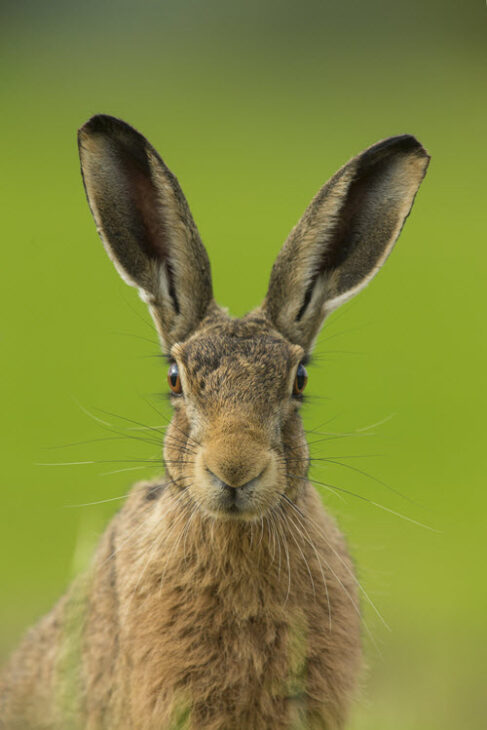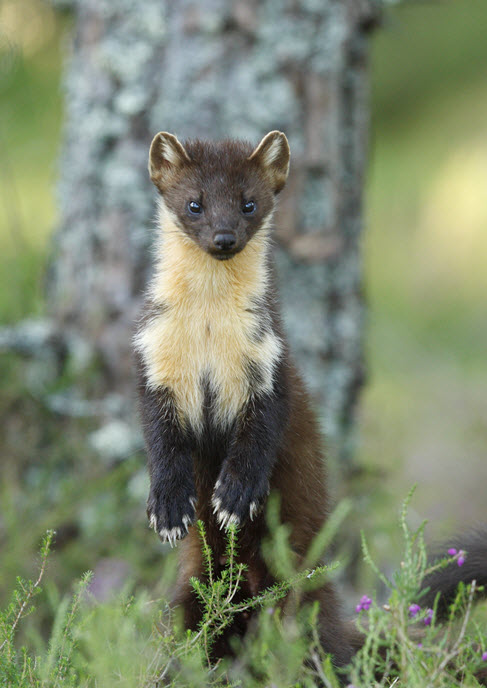As spring approaches, wildlife charity People’s Trust for Endangered Species (PTES) is calling for volunteers to take part in the annual Living with Mammals survey.
Last year, the top five mammals recorded were (in order): grey squirrels, foxes, mice, hedgehogs and bats. From April, PTES is asking members of the public to record sightings of Britain’s ‘top five’, plus any other mammals they see, to aid future conservation efforts.
When to take part
Volunteers can take part between Monday 1 April and Sunday 30 June, reporting the mammals they see, or their signs, in any local green space – from gardens and allotments to parks or green spaces near to work. The chosen survey site can be in an urban, suburban or rural location, so long as the area is within 200 metres of a building.
David Wembridge, Surveys Officer at PTES explains: “Green spaces, and the wildlife they support, are important—they provide food, clean air and water, and make us healthier and happier. Counting our wild neighbours, and knowing how their populations are changing, is a health-check on our towns and cities.”
Volunteers can spend anything from ten minutes a week at their chosen site to several hours and can take part either individually or as part of a group.
David adds: “As the weather warms up, we hope people will get out and see lots of wildlife – and the signs they leave behind, such as footprints or droppings.
Mammals you might encounter
| Mammals you’re more likely to see | Mammals that are trickier, but not impossible, to spot
(depending on where you live!) |
|
|


Your chance of spotting particular species depends on where you are in the UK. Scotland, for example, is a stronghold for pine martens and red squirrels, and PTES is particularly keen to collect records from there and from northern regions of England.
Volunteers are asked to record their findings online, where more information can be found on how to spot mammals, and how to tell a pine marten from a polecat, if you’re lucky enough to see one! PTES is keen to see your sightings, so if you’re on social media upload your photos using #livingwithmammals.
David continues: “Long-term surveys such as Living with Mammals offer invaluable data to conservationists working to save Britain’s wildlife, with the help of the public. The results allow us to understand how populations of each species are changing – for better or worse. This lets us identify where conservation work is needed most. For example, surveys have shown that at least half of the hedgehog population has been lost from the countryside in the last two decades. As a result, we’ve been working really hard to help hedgehogs in the urban landscape and we’re now starting to see a more positive outlook. We hope this will encourage last year’s volunteers and others to take part this year and make a real difference for urban mammals.”
To take part in the 2019 Living with Mammals survey, register online. The survey can also be completed via a printed pack, which can be sent to your door. Just contact LwM@ptes.org to find out how.
